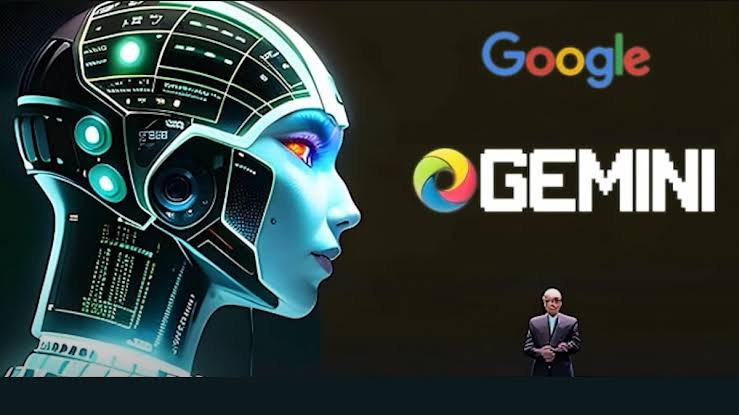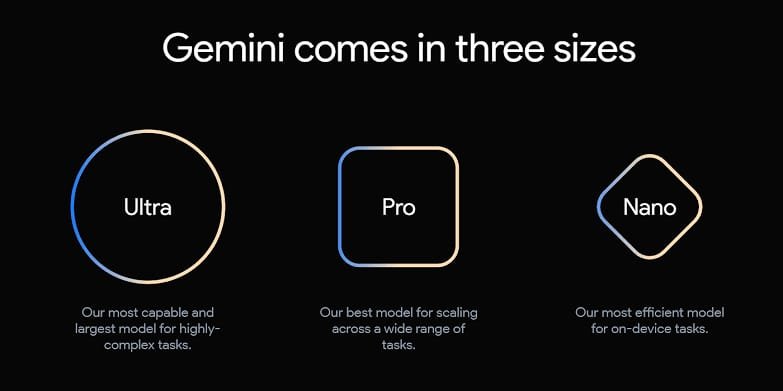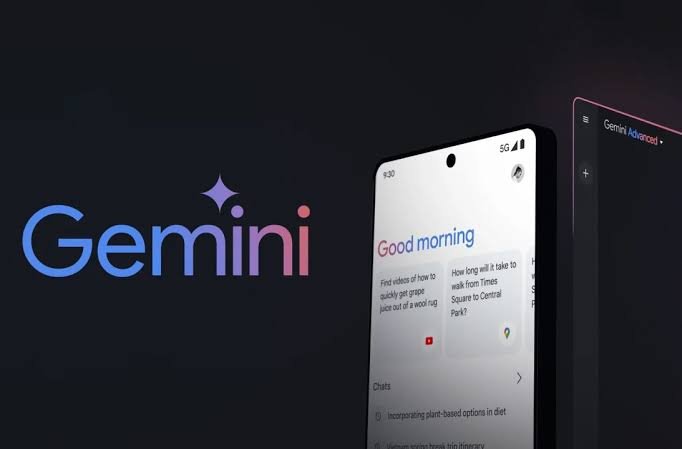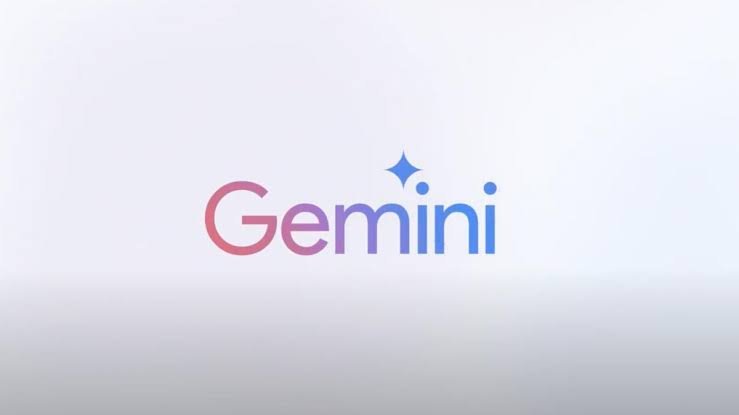Introduction: The Dawn of AI-Enhanced Search
In the fast-evolving world of digital technology, Google continues to lead the charge, revolutionizing how we access information online. With the inclusion of Artificial Intelligence (AI) into its main search engine, Google has changed the search environment, making it smarter, more intuitive, and increasingly personalized. Powered by its cutting-edge Gemini AI models, the tech giant has unveiled new features that have enhanced search results for users globally, bringing them better-organized content and more complete answers to their questions.

Google’s latest AI-enhanced search engine not only produces faster, more accurate results but also increases user experience with its AI Overviews, better visual search features, and ethical management of content attribution. This marks an important step in Google’s ambition to move from being just a search engine to becoming a knowledge engine, capable of detecting user intent and presenting results in a way that replicates human cognition.
What Are Gemini AI Overviews and How Do They Work?
Gemini AI Overviews is a generative Gemini AI tool developed by Google to better how search results are displayed to users. This tool examines millions of web sites, synthesizes the information, and delivers it in summary form, often addressing the user’s query more completely than typical search results. Essentially, AI Overviews act as a highly advanced aggregator of web content, delivering users brief and intelligent responses at the top of the search results page.
The brilliance of AI Overviews resides in its ability to use natural language processing to analyze search queries and provide human-like responses. For instance, if a user searches for “best ways to improve mental health,” AI Overviews will present a brief paragraph outlining significant tactics, backed by relevant links to detailed publications or expert viewpoints.
However, the feature’s greatest power is its handling of open-ended inquiries. Instead of relying on keyword matching, Google’s AI Overviews can provide results that capture the intent behind the inquiry, giving more accurate and contextually relevant replies. Google believes that this new technique is especially effective for complex queries where users may be looking for guidance, insights, or multiple perspectives from around the web.
Gemini AI Models: Powering the New Era of Search
At the heart of Google’s Gemini AI-driven search engine is the Gemini AI model. This next-generation AI architecture is aimed to better several aspects of Google Search, including the way it processes information, organizes material, and provides results. Gemini AI is particularly excellent at interpreting human intent, which allows it to categorize and rank search results in a way that is both relevant and intuitive.
Key Features of Gemini AI: –
Enhanced Content Understanding: Gemini AI is built to grasp the context and meaning behind the material available on the web. This allows Google to deliver search results that are more accurate and suited to user requests.

- Multimodal Search Capabilities: The Gemini AI model can merge text, graphics, and videos, enabling Google to give more dynamic search results. This is particularly advantageous for visual searches, commerce, and multimedia content discovery.
- Improved Relevance and Accuracy: Gemini AI’s capacity to handle massive volumes of information quickly enables Google to offer extremely accurate results, frequently within a matter of seconds.
By adding these elements, Google’s search engine becomes more than just a tool to get info. It becomes a complex system capable of predicting what users want to know and giving the information in the most accessible way feasible.
The Impact of AI-Organized Search Results
Google’s plan to widely roll out Gemini AI-organized search results is inspired by the success of its initial testing. According to Google, users found AI-arranged pages more helpful, since they are now able to get a full-page experience with results ordered precisely for them. This not only makes it easy to explore the large amount of information available online but also helps people locate what they’re looking for faster.

With AI Overviews, Google intends to offer a more coherent user experience. For example, if someone is searching for “best hiking trails near San Francisco,” the AI Overview will not only present a succinct summary of top trails but will also offer links to relevant articles, videos, and forums where users can go deeper into the topic. This complete approach to search is designed to cater to the increased demand for speedy, accurate, and tailored information.
Tackling complicated questions:
Another significant feature of AI-organized search results is its capacity to handle more complicated and open-ended questions. Unlike traditional search engines, which may struggle with imprecise or multi-faceted questions, Google’s AI-enhanced engine can analyze these requests and offer well-rounded results. Whether users are asking “what’s the best way to learn a new language” or “how does climate change impact marine ecosystems,” AI Overviews can filter through massive volumes of material to deliver clear and insightful answers.
The Ethics of Gemini AI-Driven Search: Attribution and Content Ownership
One of the most significant problems concerning the use of Gemini AI in search engines is the ethical implications of content ownership and attribution. When Gemini AI systems summarize material from numerous sources, problems emerge regarding who owns the content and whether sufficient credit is being provided to the original writers. Google has tackled this issue head-on by including links to supporting web pages right inside the text of Gemini AI Overviews.
This strategy not only assures that websites whose content is used by AI gain visitors but also tackles the broader ethical problems associated to intellectual property. Unlike some of its competitors, Google is making strides to preserve the rights of content creators while simultaneously boosting the user experience.
The OpenAI Challenge: A Rival Approach
Google’s main competitor in the AI area, OpenAI, has adopted a different approach. In August 2024, OpenAI announced a cooperation with numerous major news companies, including The Atlantic and News Corp, as well as publishing brands like Condé Nast. This relationship includes licensing arrangements that allow OpenAI’s ChatGPT to use their content legally, sidestepping the issue of illicit content distribution. The decision to develop these agreements occurred after various news sites, including The New York Times, sued OpenAI for copyright infringement, saying that their information was being utilized without authorization to train AI models.

While OpenAI’s method is more official and legalistic, Google’s solution of incorporating direct links to source material within its AI-generated summaries achieves a mix between convenience and respect for intellectual property. By doing so, Google not only ensures that it remains within the confines of copyright regulations but also promotes content creators by sending traffic back to their websites.
Google Lens and AI-Powered Shopping Experiences
Another significant feature that Google has brought out alongside its AI-enhanced search is an improved version of Google Lens. Google Lens now allows users to search visually, making it easier to find things, get suggestions, and even explore new areas through their phone cameras. By merely snapping a picture of an object, customers may access complete information, including where to buy the thing, related items, and even user reviews.
This has also cleared the way for a more seamless buying experience, as Google is now embedding relevant adverts into AI Overviews. For example, when users search for “best smartphones in 2024,” the AI Overview might contain product recommendations with integrated shopping links, making it easier for customers to make purchases immediately from the search results page. The incorporation of AI into Google Lens and retail ads signals a significant step toward making search not only more informational but also more transactional.
AI and the Future of Search
The inclusion of AI into Google’s search engine has generated concerns about the future of search and how people will engage with technology moving ahead. With AI at the helm, search engines are growing into more than just information retrieval systems—they are becoming personal assistants, capable of understanding user intent and offering solutions in a conversational, human-like manner.

Key Trends for the Future of AI-Powered Search: –
Conversational Search Experiences: As AI continues to progress, we may expect search engines to become more conversational. Instead of typing specific keywords, users may be able to ask search engines sophisticated questions as if they were chatting to a real person, and obtain thorough, correct responses.
- Hyper-Personalization: AI models like Gemini will further tailor the search experience by learning from user preferences and actions. Over time, Google will be able to give personalized search results that match individual requirements and interests.
- Visual and Voice Search: With developments in image recognition and natural language processing, we are likely to witness a growth in visual and voice searches. Users will be able to search simply by capturing images or voicing commands, making the process more easy and accessible.

Conclusion: Google’s AI-Powered Revolution
Google’s integration of AI into its search engine marks a critical milestone in the growth of digital technology. By utilizing the power of Gemini AI models and AI Overviews, Google is boosting the user experience, giving faster, more accurate, and tailored search results. At the same time, it is addressing ethical concerns about content credit and ownership, ensuring that its AI-driven system remains transparent and respectful of intellectual property rights.
As we look to the future, it seems apparent that AI will play a vital role in how we search for and interact with information. Google’s AI-powered search engine is not simply a tool for finding answers—it offers a glimpse into the future of intelligent, intuitive, and human-like technology that will continue to impact our digital environment for years to come.







